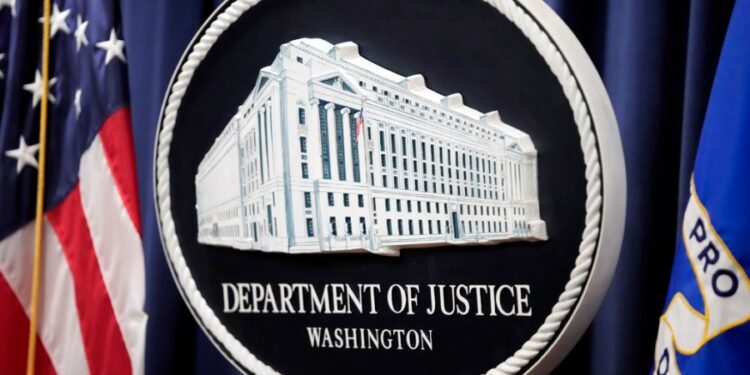
A newly-appointed U.S. attorney is putting an unfortunate twist on the the satirist Juvenal’s ancient question: “Quis custodiet ipsos custodes?” — “Who will guard the guards themselves?”
Edward R. Martin, Jr., became the interim U.S. attorney for Washington, D.C. after previously defending many Jan. 6 protestors. Within hours of his appointment, Martin opened an investigation into whether his office, under Biden-era leadership, engaged in misconduct in prosecuting the Jan. 6 cases, many involving crimes of violence against police officers.
His view is that federal prosecutors overcharged the cases, and he seeks to ascertain whether the prosecutors were improperly politically motivated to do so.
The premise for examining prosecutors’ work in the Jan. 6 cases is that the Supreme Court, in a 6-3 decision, set aside one of the charges brought against a Jan. 6 protestor. The court found that the federal trial court and appeals court had interpreted the federal obstruction-of-justice law too broadly. The court let stand the defendant’s conviction on six other counts, including assaulting a federal officer.
It is shocking for federal prosecutors to be suspected of misconduct for bringing charges based on what was, in retrospect, an overly broad reading of a criminal law. It has never been the department’s policy to adopt conservative readings of criminal laws.
Over the years, the Supreme Court has overturned federal criminal convictions on many occasions where it concluded that prosecutors stretched the law, including in prosecutions of politicians for mail fraud and bribery. But no one — least of all the leadership in the Department of Justice — has seriously questioned prosecutors’ motives in bringing these cases.
Particularly in the Jan. 6 cases, it seems plain that the prosecutors proceeded in good faith, given that their reading of the law was shared by the lower court judges and three Supreme Court justices.
In situations where there is a good reason to think federal prosecutors may have abused their vast power, it is critical to investigate and, if misconduct is discovered, to hold the errant prosecutors accountable. The question in such cases is, who should undertake this task?
Ordinarily, this assignment goes to either of two offices in the Department of Justice — the Office of Professional Responsibility or the inspector general. The career government lawyers in those offices have experience investigating potential misconduct by Department of Justice personnel.
Just as importantly, they can be trusted to do this work objectively, because they do not have direct political ties. Further, these offices are themselves subject to oversight — by Congress in the case of the inspector general, and by the attorney general in the case of the Office of Professional Responsibility.
Martin’s decision to initiate and oversee the investigation of his predecessor’s work, rather than to refer the matter to the Department of Justice officials responsible for investigating prosecutorial misconduct, is troubling in several respects.
One problem is his own evident conflict of interest in commencing an investigation of prosecutors whom he opposed as a defense attorney. But even if he had not participated on the criminal defense side of Jan. 6 cases, Martin’s role as President Trump’s political appointee would raise concerns about his own political bias.
Equally problematic is Martin’s proximity to the president. It is reasonable to conclude that Trump’s political appointees would share his personal and political interest in discrediting the Jan. 6 prosecutions. Far from neutral watchdog, Martin would seem to have a political axe to grind. If he, or those under him, conclude there was prosecutorial misconduct, many will be skeptical because of his evident bias.
More troubling still is the message this sends to all federal prosecutors. Prosecutors will now worry, as they should, about retaliation if they make unpopular decisions in politically sensitive cases. Because law and justice itself often require such politically inexpedient choices, the Department of Justice will be significantly less effective.
Prosecutors are generally trained to make decisions about whom to investigate, whether to initiate criminal charges and which charges to bring, whether to offer a plea bargain, what sentences to seek after obtaining a conviction, and other important decisions according to norms and practices of the legal profession and the Justice Department. These norms are designed to minimize bias and improper considerations. Prosecutors are taught to apply law to facts and treat like cases alike. They are trained not to consider inappropriate factors, such as partisan political considerations.
But it will be hard for federal prosecutors to ignore political considerations after a new U.S. attorney, without cause, seeks to unearth prosecutorial misconduct in cases that are anathema to the new president, who closed out the cases by issuing hundreds of pardons. The glaring if unstated message is that prosecutors’ future work will be subject to a political litmus test.
If future prosecutors, acting independently, investigate or prosecute the sitting president’s allies, or fail to pursue that president’s foes, those prosecutors can expect their decisions to be reviewed and to face adverse employment action. If they want to keep their jobs, they will use their power to weaken Trump’s political opponents while emboldening his allies to commit crimes with impunity.
Who then should investigate possible misconduct by Biden-era prosecutors? If we care about democratic principles and the rule of law, the answer plainly should not be, “Trump’s latest political appointee.”
Bruce Green is a professor at Fordham Law School, where he directs the Louis Stein Center for Law and Ethics and Rebecca Roiphe is a professor at New York Law School, where she directs the Institute for Professional Ethics.






